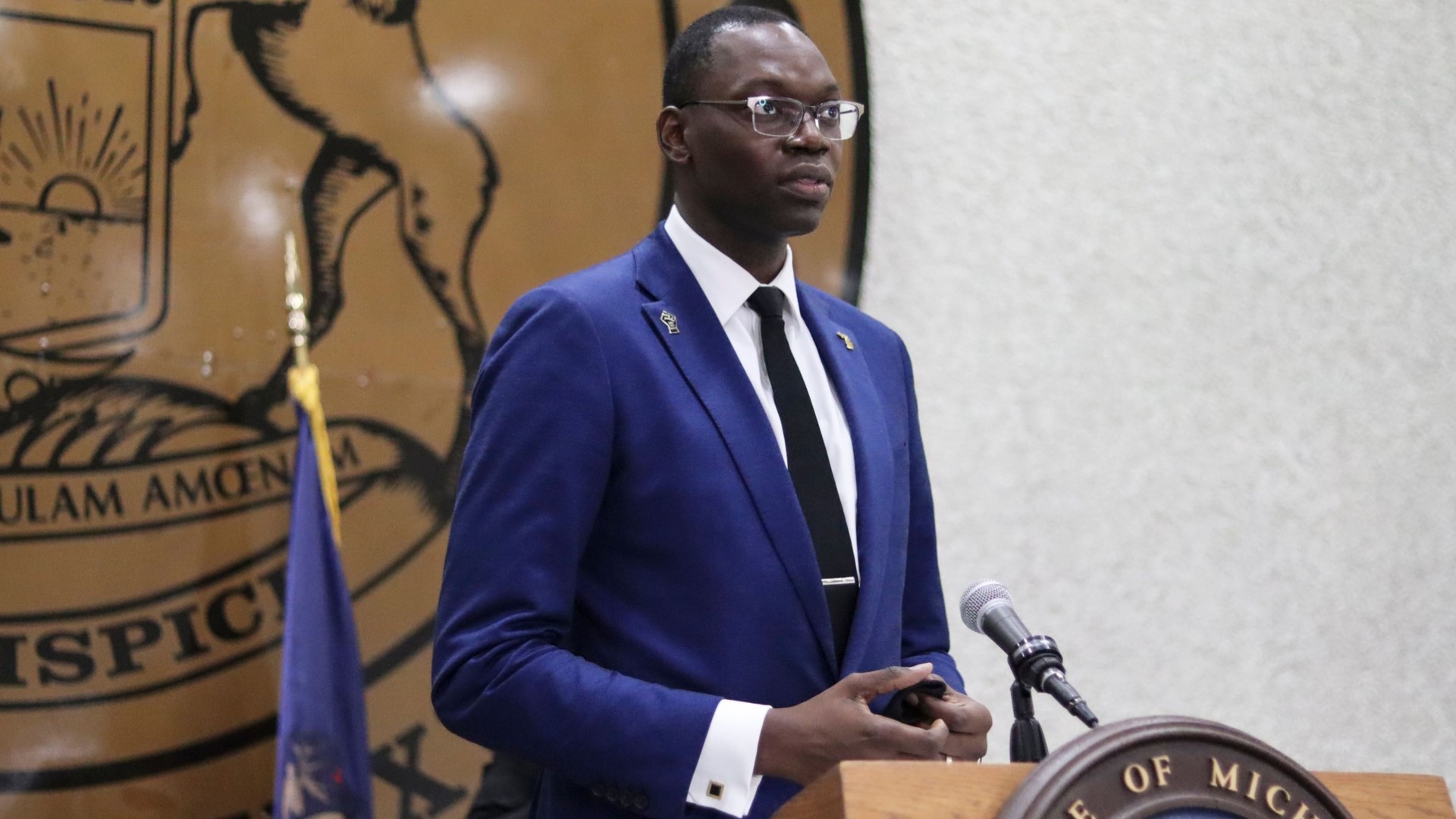LANSING, Mich. — State legislators came to an agreement on Michigan's 2022-23 Fiscal Year Budget in the early morning of July 1, just hours after the June 30 deadline passed.
Michigan's budget for the upcoming fiscal year is historically large due to federal pandemic relief fueling consumer spending throughout the state.
The sizeable increase in funds allowed Governor Gretchen Whitmer and the GOP-controlled Legislature to increase spending across the board with record investments into education in the state.
Lt. Gov. Garlin Gilchrist II spoke with 13 ON YOUR SIDE about the budget and shared his thoughts on what this record funding in education means on the student and teacher level.
"It gives the school districts and education professionals the resources they need to truly meet students where they are, the truth is the depth of the needs of our students, particularly those who are living in families that are fighting poverty, or in our most rural communities need a lot of help and support at this time when school has been so challenging for our kids and education professionals over the last few years to help get back on track," Gilchrist said.
This is the second education budget that includes equal student funding across all school districts, which wasn't the case in years previous. The access to equal funds was granted after a bill was signed into law mandating equal distribution of resources per-pupil in 2021.
Gilchrist shared his insight into the results of this new equitable funding saying, "It sets a floor for equity when it comes to education funding different districts and different families in different districts have different needs. And so by really bringing equalization, bringing this promise from the mid 90s to fruition for the second year in a row shows that we can make equity based investments in our schools that are aligned with the research that shows that districts where students are fighting poverty need more investment. And we're finally now bringing that to reality here in Michigan and Michigan families in Michigan, young people are going to benefit from it."
Gilchrist also spoke about increases in mental health funding and how it can help reduce health care costs to the state and reduce the frequency of emergency situations.
"The increased availability we believe will lead to increased usage, there certainly is a demand for it. And by using this by having more early intervention and more consistent intervention, it will save us on money on catastrophic interventions or things that may happen too late. There's community costs, it's not just the dollar amount that that we'll be able to save in terms of tragedies that are happening with people who may overdose or commit suicide or attempt suicide, that can be reduced if people have ready access to mental and behavioral health support services in their communities. That's super easy to get to, that's affordable. And we think this will really change the trajectory for the state", Gilchrist said.
The biggest area of contention between Republicans and Democrats in the Michigan Budget discussions was how to use the nearly $7 billion in funds set aside for tax cuts and relief for Michiganders.
The Republican Legislature has approved multiple bipartisan tax relief plans, a gas tax holiday and two proposals for income tax relief, but Gov. Whitmer has vetoed all three.
In place of the vetoes, Whitmer and Gilchrist have proposed three other options for the legislature to consider.
"Three big areas. The first is on repealing the retirement tax on people's pensions and other retirement income that was enacted by the Republican legislature 10 years ago. We're ready to roll that back and put money back in the pockets of our retired Michiganders," Gilchrist said in the interview.
The pension tax of 4.25% was enacted under Governor Snyder in 2011 to help make up for budget shortfall.
"The second is on tripling the working families earned income tax credit for people who have jobs and are working hard but still may not be able to make ends meet. repealing this will put thousands of dollars in the pockets of more than 700,000 people in the state of Michigan so they can have money to buy food, buy groceries to buy to buy gas to buy medicine at a time when things are so expensive. And they need the extra money to be able to cover those costs," Gilchrist said.
Earlier this year, Whitmer proposed the increase in the earned income tax credit to deliver an estimated average tax refund of $3,000 to Michigan families.
"And the third is to have an inflation relief $500 Check go to every Michigan taxpayer something else that we proposed earlier this year to put forward we think this will help people save money and we have the resources to do it. So we're looking forward to negotiating getting these things done," Gilchrist concluded.
►Make it easy to keep up to date with more stories like this. Download the 13 ON YOUR SIDE app now.
Have a news tip? Email news@13onyourside.com, visit our Facebook page or Twitter. Subscribe to our YouTube channel.

